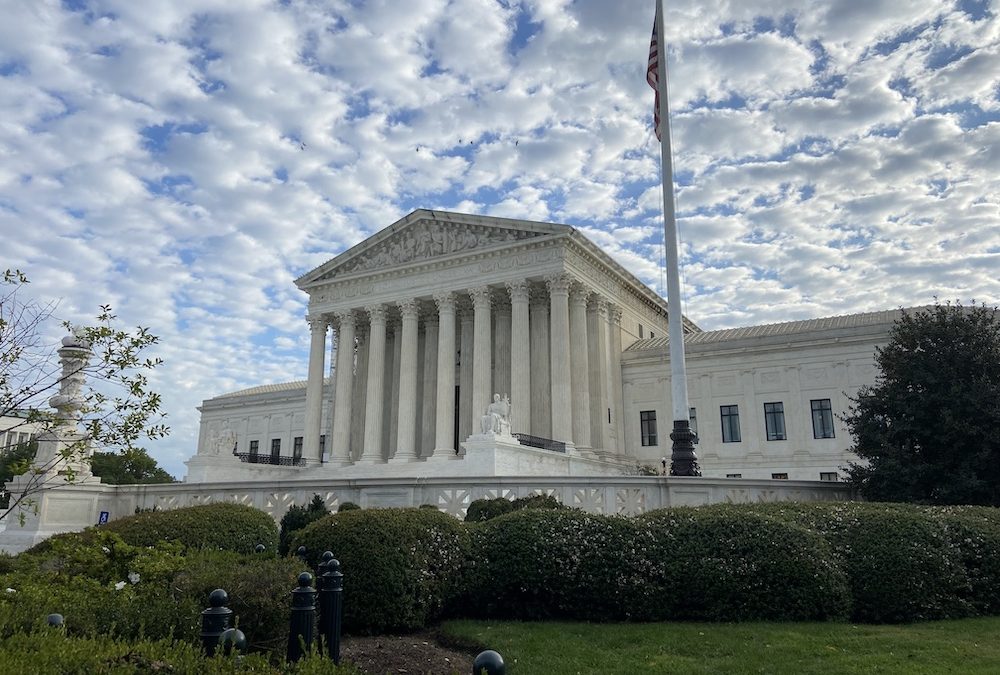WASHINGTON – The Supreme Court heard oral arguments on Wednesday in a case that questions the constitutionality of using administrative law judges in federal agencies.
In Security Exchange Commission vs. Jarkesy, the U.S. Court of Appeals for the Fifth Circuit ruled SEC’s administrative law judges are unconstitutional and that Congress violated the nondelegation doctrine by empowering the SEC to use these judges to enforce securities laws.
The lawyer for George Jarkesy, a former Wall Street broker and television commentator, argued that when the SEC initiated administrative enforcement, it violated his right to a trial by jury under the Seventh Amendment.
If the Supreme Court decides for Jarkesy and takes power away from government agencies, that could “inhibit the ability of financial regulators to protect American people from corporate predators in the financial world,” said Devon Ombres, a legal expert for the Center for American Progress, a liberal think tank.
That would mean every case sent to an administrative law judge would have to be tried before a jury in a district or federal court.
“The effect for defendants would be significant,” said Nicolas Morgan, an attorney and ex-SEC litigator, who filed a friend-of-the-court brief for Elon Musk, Mark Cuban and three other business leaders who have clashed with the SEC, according to Fortune.
“Potentially, you would see fewer defendants settle if they know they’re going to be able to plead their case to a jury.”
The Administrative Procedure Act, which is now incorporated into Title 5 of the United States Code, created offices of administrative law judges across the executive branch.
Within the SEC, for example, administrative law judges act as independent adjudicators and issue initial decisions in proceedings in which there are allegations of wrongdoing.
In the case under review, Jarkesy established two hedge funds that the SEC started to investigate in 2011. An administrative law judge found Jarkesy guilty of securities fraud. The Fifth Circuit reversed this decision and held that the SEC’s adjudication violated Jarkesy’s Seventh Amendment right to trial by jury.
“We don’t usually say the government can avoid a constitutional mandate merely by relabeling or moving things around. It’s as much of a violation to do something indirectly as it is directly.” Justice Neil Gorsuch said.
Brian Fletcher, principal deputy solicitor general of the Department of Justice, argued in defense of the SEC. His argument heavily relied on a case in which the Supreme Court ruled that Congress can empower an executive agency to adjudicate violations of a new public rights statute without infringing on the Seventh Amendment.
Conservative judges who hold the majority on the Supreme Court found issue with this argument.
“It seems problematic to say the government can deprive you of your property, your money and substantial sums in a tribunal that is at least perceived as not being impartial,” Justice Brett Kavanaugh said.
“In the sense that it is an in-house agency where the commissioners start the enforcement process, oversee the enforcers and appoint the adjudicators, and review the adjudication.”
However liberal Justices found the ruling in the other case, Atlas Roofing Co vs. the Occupational Safety and Health Administration to be sufficient. They argued that eliminating administrative law judges and directing matters to a federal court would overwhelm an already crowded system.
“It could not have been clearer that what [Atlas Roofing Co. vs. OSHA] was saying was the Seventh Amendment is no bar to Congress making a decision that certain kinds of claims were best adjudicated in administrative agencies,” Justice Elena Kagan said.
Most administrative law judges work for the Social Security Administration. These judges hold hearings upon request for people who appeal their Social Security or Supplemental Security Income benefits.
Eradicating their role in the federal government could make it much harder for people to appeal anything having to do with their benefits, observers said.
This is one of multiple cases that the Supreme Court will hear this session concerning the power that federal agencies have. Set to be heard in January, Loper Bright Enterprises vs. Raimondo will challenge the Chevron doctrine, on which courts have relied give broad deference to federal agencies in interpreting laws.
The opinion in SEC vs. Jarkesy is not expected before June.


